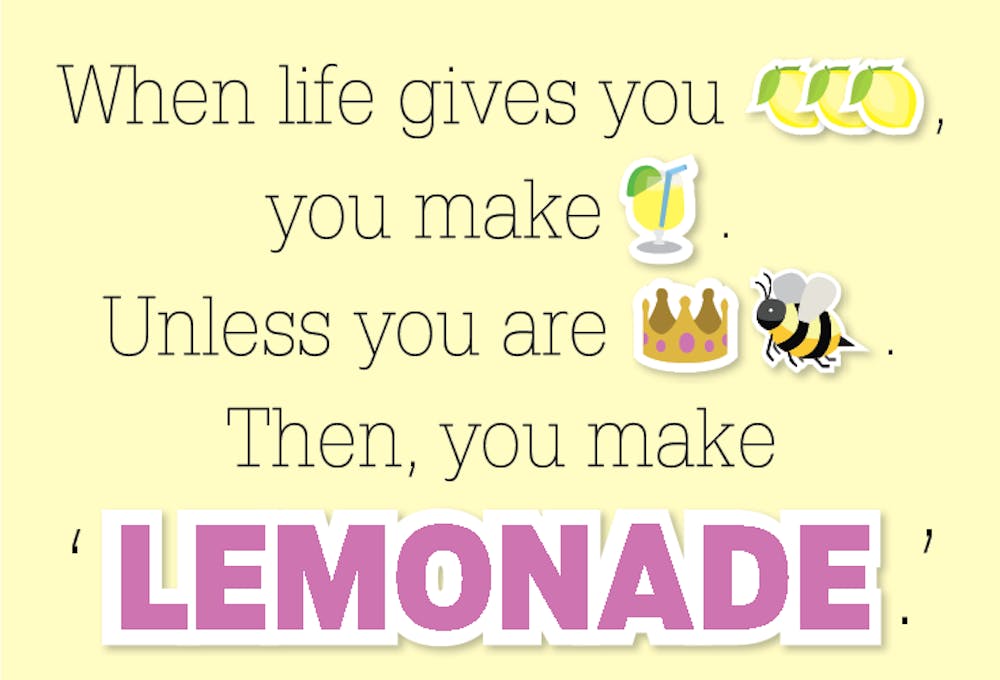No one’s a bigger fan of surprises than Beyoncé.
She shocked us in 2013 with the unannounced release of her visual self-titled album “Beyoncé.” The world rightfully descended into madness. People were screaming down the streets. They were delving into their grocery budgets so they could buy the album. They were abandoning all responsibilities to cuddle with their laptops and watch Queen Bey’s 14 wonders.
There hasn’t been a phenomenon like it since. Because no one can outdo Beyoncé.
Except for Beyoncé.
On April 23, Beyoncé premiered her new visual album, “Lemonade,” on HBO.
The album is a deeply personal narrative of Beyoncé’s marriage to Jay Z after he had an affair. Each song focuses on a different emotion in the process of reconciling their relationship: intuition, denial, anger, apathy, emptiness, accountability, reformation, forgiveness, resurrection, hope and redemption.
The film uses the poetry of Warsan Shire to transition between songs. The words speak to the sting of infidelity, the power of forgiveness and the strength of women.
But not just any women.
Black women.
“Lemonade” is radiating with black-girl magic. Beyoncé enlisted the help of dozens of black women to participate in her film, including stars like Serena Williams, Amandla Stenberg, Winnie Harlow, Zendaya Coleman and Quvenzhané Wallis.
The myriad of women expands generations to honor decades’ worth of the struggles black women have faced as far back as the days of slavery.
In the video, Beyoncé incorporates a quote from Malcolm X: “The most disrespected person in America is the black woman. The most unprotected person in America is the black woman. The most neglected person in America is the black woman.”
The black woman has never been addressed, much less glorified, the way she was in “Lemonade.” For once, black women weren’t the background characters or a colorful personality.
Black women were the story. And it wasn’t a story of woe and tragedy, contrary to the way “Lemonade” begins as Beyoncé comes to terms with the wreckage of her marriage.
It’s a story of empowerment, of overcoming odds and emotional strife. It’s a tale of the iron that layers our black skin, of what makes us powerful and beautiful and forces of nature.
If there’s a single scene that perfectly exemplifies that kind of strength, it’s in the song “Forward,” where the mothers of Trayvon Martin and Michael Brown hold photographs of their sons. Under the grim imagery, James Black and Beyoncé sing, “Forward / Best foot first just in case / When we made our way ‘til now / It’s time to listen, it’s time to fight.”
It’s the kind of encouragement black women need to hear right now as movements for our rights rise and fall and are slandered and demeaned.
In our darkest hour, Beyoncé reminds us that we’ve already come so far and we can’t afford to stop.
And isn’t that the moral of her album? The reason she chose to try to fix her relationship instead of allowing the betrayal of her husband to strip the value from all of the time and love they’ve invested in one another?
In a sense, it’s about taking a risk. A risk on love, a risk on progress.
Moving forward.
Turning lemons into lemonade.




